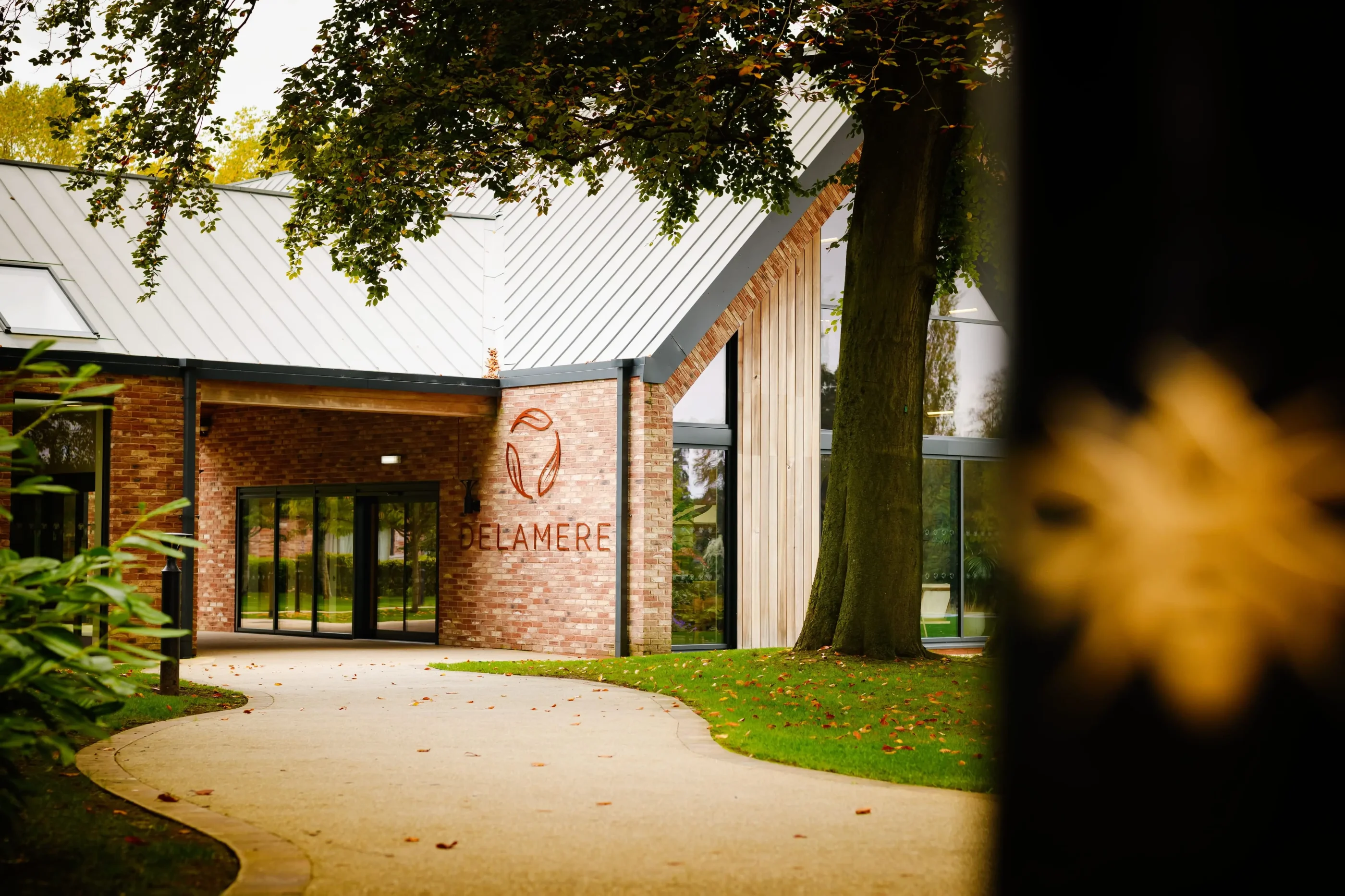The role of alcohol in UK culture, and how to break free
Delamere Health discusses the role of alcohol in UK culture and how to break free from societal pressures.
Read more

One of the most effective ways to treat alcohol addiction is through residential alcohol addiction treatment. Within our purpose-built, luxury rehab clinic, we provide a deliberately intensive and immersive experience to help you create space from alcohol.


Clinically known as Alcohol Use Disorder (AUD), alcohol addiction is a complex brain disorder that can occur after prolonged alcohol abuse.
When consumed regularly, alcohol causes structural brain changes that affect the way we behave, think and feel. These changes can fuel the transition from occasional drinking to mild, moderate or severe dysfunction.
Someone who has become dependent on alcohol will find it incredibly hard to stop drinking despite negative effects on their health, work and family life.
We have treated over 927 guests for alcohol addiction



Our approach is person-centred and holistic. That means we understand that each person is unique and we don’t subscribe to a one-site-fits-all philosophy.

United by a common goal to support guests in growing from addiction, our Delamere team is made up of passionate therapists, doctors, nurses, counsellors, and support staff, some of whom have also overcome addictions themselves.
Our emphasis is on holistic care to treat addiction and associated issues. This means that we treat the whole person rather than just the symptoms they present with. We believe that successful treatment runs far deeper than simply stopping the addictive substance or behaviour.
Our approach at Delamere comprises four core phases: Stop, Start, Grow, & Bloom. Everything we offer at Delamere aims at effective and lasting outcomes in addiction treatment:
The first part of your alcohol addiction treatment is a medically supervised alcohol detox. This is a simple procedure that provides all the clinical support you need to safely withdraw from alcohol.
You’ll be introduced to some light therapy and prescribed medication, if necessary, to help you recover at your own pace.
During the first couple of days of alcohol withdrawals you’ll start to experience symptoms such as anxiety, restlessness, headache and nausea. Our nursing team will help you to manage any discomfort.
By day three most symptoms will have subsided, and we will continue to provide ongoing care to put you at ease.
In week one following your detox you’ll start intensive therapy with a focal counsellor and within group settings to help overcome your addiction.
Living alongside someone who has an alcohol problem can be exhausting, painful, and confusing. If you are looking for help for a friend, working with someone, or living alongside someone who is displaying symptoms of alcohol addiction, we’re here to help.
It may be that the person in question is in denial about the extent of their problem, possibly even refusing to acknowledge that there even is one.
At Delamere, we provide family support services as well as intervention services whereby we help prepare and rehearse a formal intervention that will culminate in your loved one entering treatment with us.
Delamere Health discusses the role of alcohol in UK culture and how to break free from societal pressures.
Read moreAttempting to detox from alcohol without medical supervision can be dangerous. Learn more about our alcohol detox programme.
Read moreA recent study conducted by pharmaceutical company, STADA, found that weekly consumption of alcohol in the UK is higher than Europe.
Read more
Start your recovery journey by calling our admissions team today.
Confidential. Straightforward. Friendly.